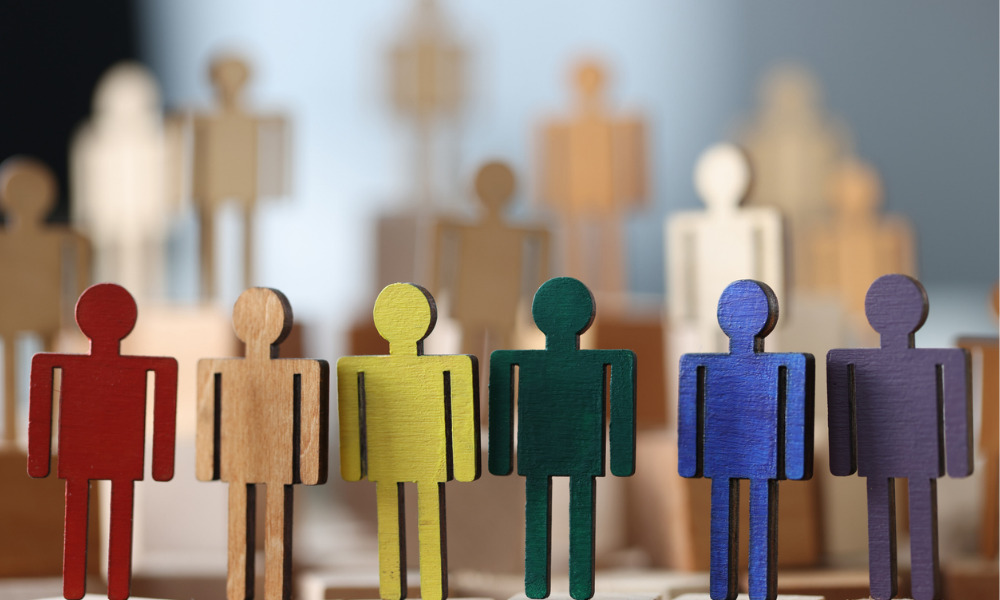
Australia still has a long way to go

New research paints a stark picture of the issues facing LGBTIQA+ employees in Australian workplaces, revealing that they are twice as likely to experience discrimination at work. The data released by SEEK as part of its Promoting Real Inclusion Diversity and Empowerment in the Workplace report highlights the inequality between those in the LGBTIQA+ community and their non-LGBTIQA+ counterparts. As well as being at higher risk of discrimination, LGBTIQA+ employees are nearly two and a half times more likely to fake sick or skip work, so they don’t have to come into a workplace where they feel unsafe.
Even more worryingly, more than half (57%) of LGBTIQA+ workers who have experienced or witnessed discrimination said these issues are rarely or never resolved. The data shows discrimination is still a present danger for the LGBTIQA+ community at work – where people spend the majority of their lives – and there is a lot more work to be done.
HRD spoke to Jason Tuazon-McCheyne, CEO of The Equality Project, a national LBGTIQA+ charity, about what HR leaders can do to foster a safe working environment for diverse employees.
“There's a level of ignorance and misunderstanding that's out there,” he said. “It requires internal champions inside organisations, and generally HR leaders are part of that process, to drive those changes that are needed to increase awareness and understanding what's going on, which then benefits the employees and the business in the long run.”
Fostering an inclusive workplace shouldn’t fall on LGBTQIA+ employees alone, but be a collective goal of the workforce as a whole. That can be driven through cultivating a sense of allyship, Tuazon-McCheyne said. Many of the strategies he recommends for HR leaders are free and simple to implement, but they can have a powerful ripple effect on the workplace.
It goes without saying that there is no place for discrimination in the workplace – and yet it still exists. Organisations should explicitly forbid discrimination against LGBTIQA+ employees clearly in their employee handbook or code of conduct. The same goes for other minority groups. It may seem obvious but it sets out a zero-tolerance approach to discrimination from an employee’s very first day.
Read more: Measuring the ROI: How to show diversity’s value
The calendar is full of awareness days and events, offering opportunities to celebrate diversity and promote inclusivity. By organising a company-wide get together – which can easily become virtual through platforms like Zoom – it’s a way to signal inclusivity and also start conversations about the challenges still facing the LGBTQIA+ community.
“Organisations can show their support by recognising key days in the LGBTQIA+ calendar so there’s IDAHOBIT Day (International Day Against Homophobia, Biphobia, Intersexism and Transphobia) there’s Pride months at various times, depending on which state you’re in, and transgender awareness days,” Tuazon-McCheyne said.
Another simple yet effective tool is to introduce visual cues, such as rainbow logos on posters displayed in the office or on reception, or in our increasingly virtual world, on email communications and websites. Displaying pronouns on emails is another method of normalising the fact that some employees may present outside of their assumed identities.
“If every employee is encouraged to have he/him, they/them, or she/her, it sends a signal to LGBTQIA+ people in particular that this is an inclusive place,” Tuazon-McCheyne said.
These small changes may seem insignificant to a non-LGBTIQA+ person but the way people leaders use language has a profound effect on marginalised employees. Language, and how we use it, has the power to spark a much-wider culture change of inclusion and acceptance.
Language is also important when it comes to company policies. Ensure things like parental leave acknowledge relationships outside of the traditional man/woman structure, including fostering, adoption or surrogacy, and making sure all employees have access – regardless of their sexual orientation.
Often, intolerance stems from ignorance, and so running simple awareness sessions is a way to get the conversation started. If HR leaders feel ill-equipped to run a session themselves, there are plenty of outside organisations they can turn to.
Tuazon-McCheyne said these sessions are a great way of creating a safe space for employees to engage and ask questions
“To be able to have those conversations and create the space where people can become less ignorant can only lead to better outcomes,” he said.
Read more: Shifting the dial on diversity and inclusion at work
With many employees working remotely thanks to lockdowns across the country, it’s a great time for organisations to question how they’re supporting a diverse workforce both now, and when they return to the office. Sadly for many employees, working from home means they can be their authentic selves. What organisations need to do is make sure that when they do return to the office, they can be their whole selves there too.
“If you can't be your authentic self in your workplace you can’t be the best employee that you can be or do the best work you can, because you've got these extra things that are hindering you to start with,” Tuazon-McCheyne said.
“But these tips are some basic things you can do to improve the business, to improve the workplace culture and create cultural safety, so that everyone can perform to their best.
“There’s not one single thing that changes everything, but particularly from an HR perspective, it’s about creating those spaces for conversations to happen, celebrating the events that are going on and being intentional through policies codes of conduct.”
Read more: Flexible working: Is it given or is it earned?
Read more: Workplace COVID-19 vaccinations could begin in September